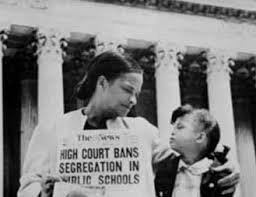In 2022 I wrote a piece here at Next Steps declaring myself President of the “Religious Charter Schools Should Be Permitted, Mandatory and Non-existent” club. Every other group under the sun operates charter schools and infuses the curriculum with their point of view, which is fine because charter schools should be viewed as state contractors, as they are out here in the 9th Circuit. Moreover no one is ever forced to attend.
In that context, telling Lutherans etc. that they are some kind of menace to society that we must protect children from seems both bigoted and silly. It is also contrary to the principle of religious neutrality. Moreover, the equivalents of religious charter schools operate in Europe, and while it may not be optimal, it is hard to argue that such a prospect is catastrophic.
I also attempted to explain that the charter movement of today is not the movement of decades past. We’ve spent a couple of decades passing charter school laws perfectly designed not to open many actual charter schools. When states passed laws perfectly designed not to pass many charter schools, national charter groups sang the praises of the new laws.
This is not as strange as it sounds. This is not to say that it isn’t pathetic — it is in fact entirely pathetic — but it is not unheard of. Public choice economists long ago identified a Baptist and Bootlegger problem whereby sincere opponents (Baptists in this case are the unions and their groupies) and opportunistic incumbents (in this case charter management organizations with a legal team that can file a 900+ page application etc.) team up to throttle competition…err…I meant ensure quality charter authorizing.
Actually, I had it right the first time.
If you’ve been keeping half an eye on the Supreme Court for the last 20-plus years, you’ll know that the majority (delightfully) takes a dim view of discriminating against people or groups based upon their religious affiliations. I could be wrong (it has happened plenty of times before) but I’m thinking it is pretty clear how this case is likely to go.
Even if/when the high court allows religious charter schools, enthusiasts need to remember that this is what awaits even if you win the case:
The B and B alliance does not want m(any?) new charter schools to open, and both will be aghast at the idea of religious charter schools. I am not going to help them dream up insidious ways to discriminate against religious groups. If I did, it wouldn’t take me long to dream up five or six ways. On principle, I am with the religious charter school enthusiasts. Color me skeptical that this effort will prove a productive way to provide new schools and seats, but non-discrimination and an experimental mindset should prevail.
Enthusiasts should, however, understand the politics of what they are getting into.
Editor’s note: The NAEP will release 2024 fourth and eighth grade math and reading scores Wednesday. Buckle up!
 Center for Media and Democracy PR Watch
Center for Media and Democracy PR WatchAre school vouchers really a “libertarian scheme cooked up out of an ideological hostility toward the idea of public schools” or a means to “subsidize and perpetuate segregation?” If you leave half the history out of the equation, you might reach that conclusion. This is what PR Watch, a left-wing group out to expose right-wing spin, ironically ends up achieving in a blog post on school vouchers.
Let’s not forget that desegregation efforts began because public schools were racially segregated for more than a century.
Following the landmark ruling in Brown v. Board of Education, a resistance movement to desegregation began. Some segregationists did find a solution in a short-lived form of private school vouchers. But many more resisted integration through public schools, sometimes by shutting them down (which also contributed to an increase in private school enrollment) or by zoning black students completely out of their districts.
 Some public school districts remain highly segregated to this day. Opponents of school choice sometimes forget that racial imbalances can occur between school districts, like in North Carolina or St. Louis (where a mostly white district recently tried to prevent mostly black students from transferring in).
Some public school districts remain highly segregated to this day. Opponents of school choice sometimes forget that racial imbalances can occur between school districts, like in North Carolina or St. Louis (where a mostly white district recently tried to prevent mostly black students from transferring in).
PR Watch brushes aside this history to de-legitimize the modern school choice movement's focus on equity, civil rights and improving education quality for low-income and minority students.
The reality is that our entire education system has to confront a legacy of racism and segregation. The question is what to do about it. Giving all families alternatives to what was once an oppressive system of geographic school assignment can be part of the answer.